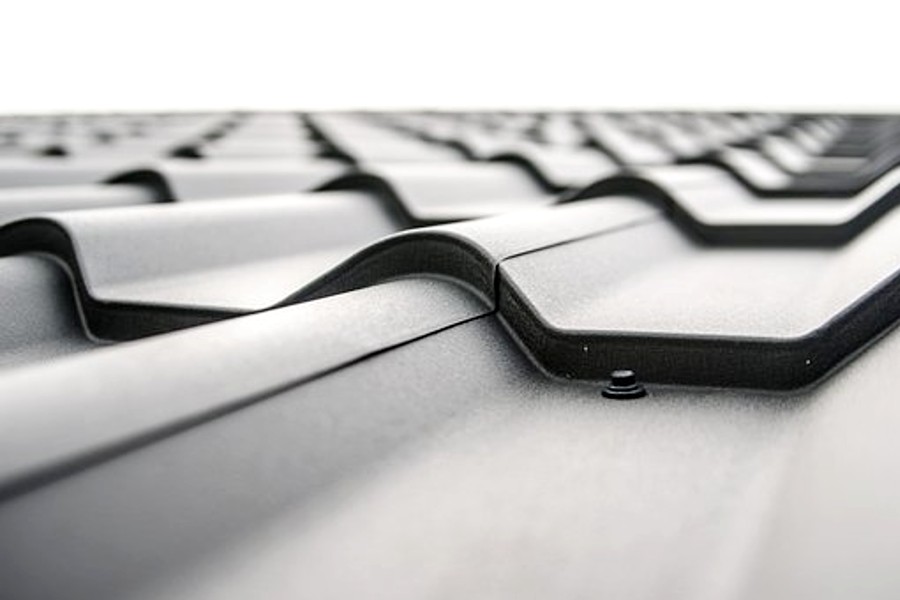
Your commercial rooftop is one of the most critical components of your business, and keeping it in good condition should be a top priority.
A roof that isn’t regularly maintained can lead to costly repairs or, worse, a complete replacement. It’s essential to understand the basics of commercial roofing to keep your building better and save money in the future. In this post, we will cover six important facts about commercial roofing that everyone should know before signing on with an installer or making any upgrades.
1. There are Different Roofing Types for Different Buildings
Not all commercial buildings have the same roofing needs. The type of commercial roofing system best suited for a building depends on various factors such as the size and design of the building, location, climate, budget, and intended use. For example, a metal roof may be more suitable for a larger building with a flat or low-sloped roof, while a PVC roof may be better for a smaller building in an area with frequent rain or snow.
It’s important to consider all these factors when choosing the right roofing system for your commercial building. Working closely with a professional contractor can help ensure you make the most suitable and cost-effective choice.
2. Commercial Roofing Installation is Complex
The complexity of commercial roofing installation must be balanced. Unlike residential roofing, which often involves a single-layer installation, commercial roofing can involve multiple layers of materials, each serving a different purpose, such as waterproofing, insulation, and resistance to weathering. It also requires more specialized equipment and a larger workforce due to the scale of the projects.
Commercial roofs are often flat or have a low slope, requiring specific installation techniques for water drainage and to prevent pooling. Other complexities include accommodating rooftop equipment like HVAC systems and adhering to strict building codes. Engaging experienced professionals for commercial roofing installation is crucial.
3. The Roofing Lifespan Depends on Material and Maintenance
The lifespan of a commercial roofing system is heavily influenced by two primary factors: the type of material used and the regularity and quality of maintenance. Common materials used in commercial roofing include metal, EPDM rubber, PVC, and TPO, each with longevity. Metal roofs, for instance, can last up to 40 years with proper maintenance, whereas EPDM rubber roofs typically have a lifespan of around 20 years.
Regular maintenance is vital to extend the lifespan of materials. This includes routine inspections, timely repairs, and proper cleaning to prevent debris accumulation and water pooling. Neglecting maintenance can shorten a roof’s lifespan, leading to costly replacements. Understanding the expected lifespan of your roofing material and adhering to a consistent maintenance schedule is essential for maximizing your investment.
4. Roofs are Designed With Diverse Materials
Commercial roofing systems are designed using a variety of materials, each with its unique characteristics and benefits. As mentioned, some common materials include metal, EPDM rubber, PVC, and TPO. However, there are also other options, such as built-up roofing (BUR), which consists of multiple layers of tar and gravel or asphalt rolled out onto the roof.
Each material has advantages and disadvantages, such as durability, cost, and ease of installation. It’s essential to research and understand the specific properties of each material before deciding on the best option for your commercial building. Consulting with a professional roofing contractor can also help you make an informed decision about which material will best suit your needs.
5. Routine Inspections are Vital
These inspections, generally recommended to be undertaken biannually or following major weather events, help identify potential issues such as leaks, wear and tear, or damage caused by debris. By detecting these problems early, proactive measures can be taken to address them, preventing minor issues from escalating into major, costly repairs or even entire roof replacements.
Moreover, routine inspections ensure that your roof complies with warranty terms and conditions and aligns with industry best practices. Lastly, these inspections provide valuable insights into the current state of your roof, aiding in planning future maintenance, identifying the need for possible upgrades, and effectively budgeting for these expenses.
6. The Importance of Proper Drainage
Proper drainage is crucial for commercial roofing systems, especially flat or low-sloped designs. Without adequate drainage, water can accumulate on the roof, leading to structural damage and leaks. To prevent this, roofs are designed with specific slopes and drainage systems, such as gutters and downspouts, to direct water away from the building. It’s essential to regularly inspect and maintain these systems to ensure they are functioning correctly and prevent any potential issues. Additionally, keeping the roof clean of debris can also help with drainage by preventing clogs in gutters and downspouts.
Understanding these six important facts about commercial roofing can help you make informed decisions regarding installation, maintenance, and repairs. It’s crucial to work with experienced professionals and regularly inspect and maintain your roof to ensure its longevity and protect your building. By staying informed and taking proactive measures, you can save yourself from costly repairs or replacements in the future.
Photo credit: Source.
- Rare Carat: Cartier, Winston, And More, Where Is The Best Place To Buy Diamonds?
- Sponsored Love: Questions To Ask Your Videographer In New Orleans
- 100% Grass-Fed Organic Dairy Benefits Harlemites, The Environment, Cows And Family Farms
- How A Manual Washing Machine Can Help Reclaim Time, Improve Lives
- Elected Representatives Call On Mayor Adams To Support Fair Contracts For Healthcare Heroes
Become a Harlem Insider!
By submitting this form, you are consenting to receive marketing emails from: Harlem World Magazine, 2521 1/2 west 42nd street, Los Angeles, CA, 90008, https://www.harlemworldmagazine.com. You can revoke your consent to receive emails at any time by using the SafeUnsubscribe® link, found at the bottom of every email. Emails are serviced by Constant Contact







